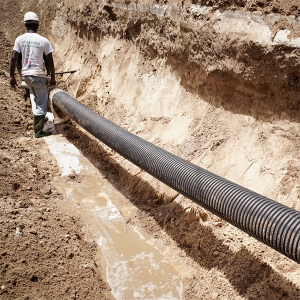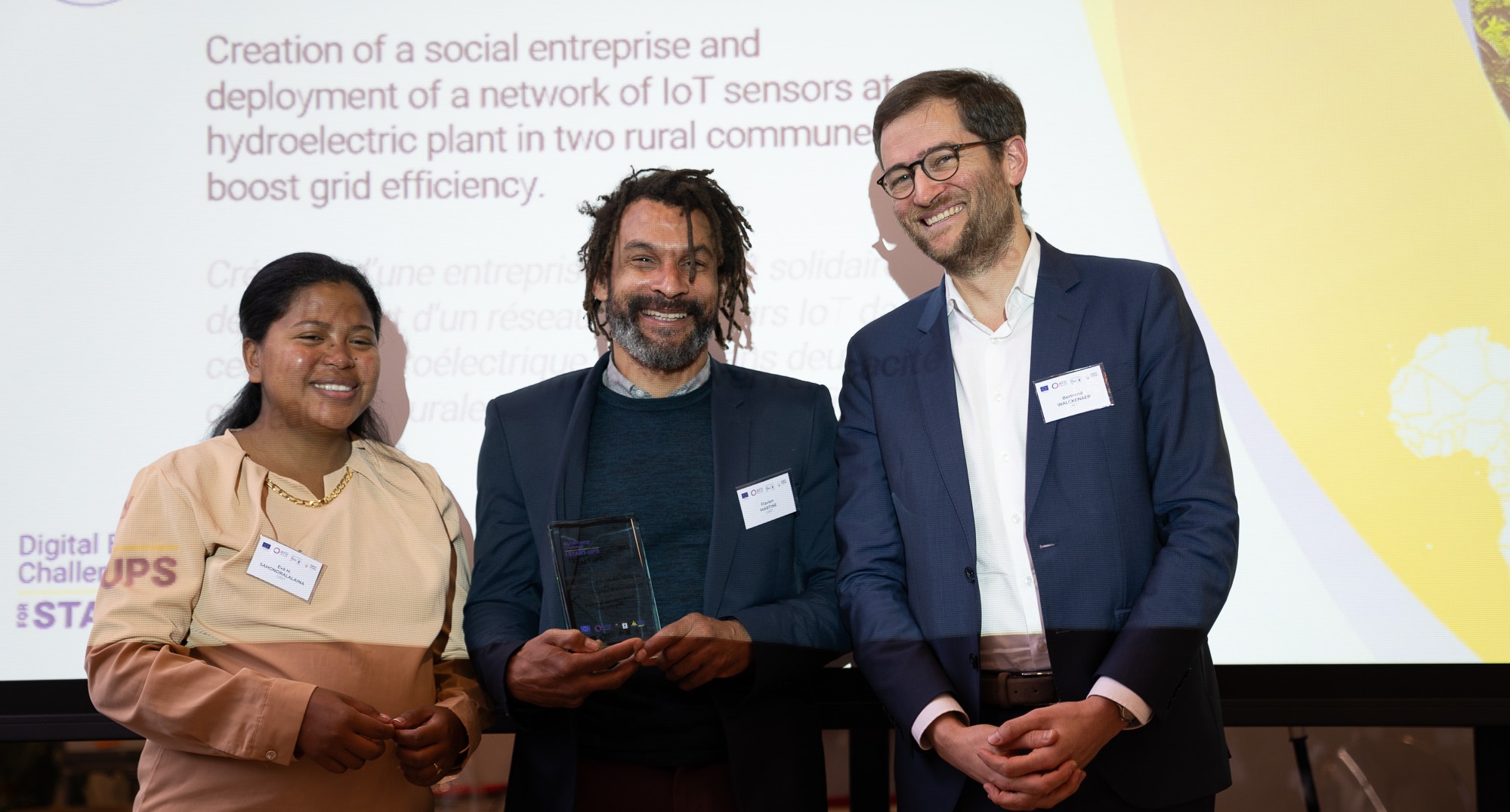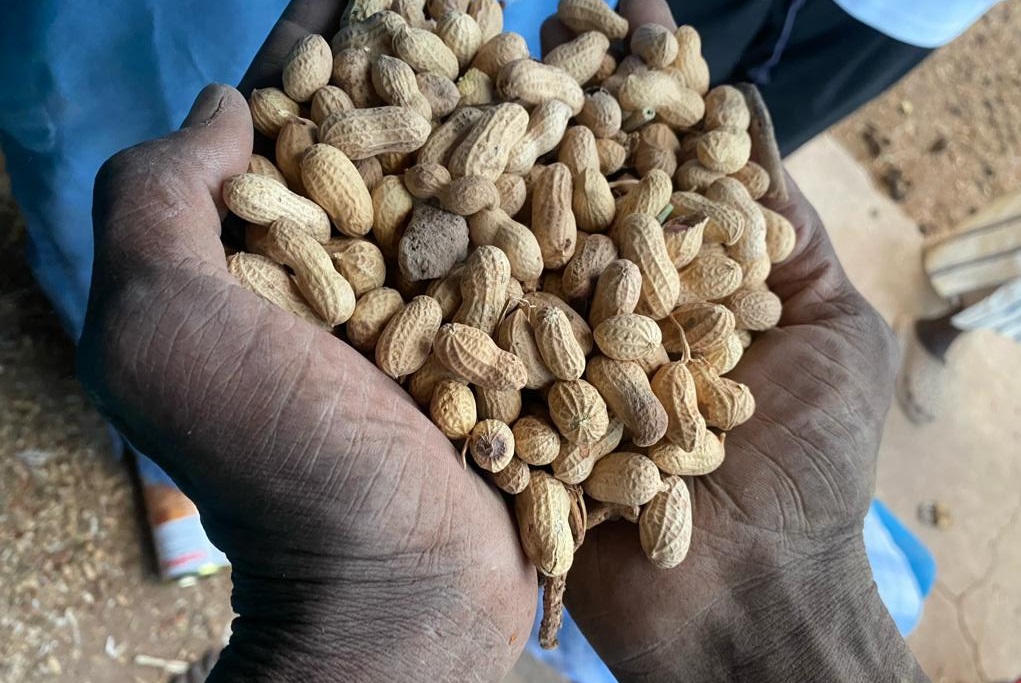Launched in November 2016, work on installing the sanitation network for collecting waste water in the Guet Ndar neighbourhood was completed on 30 May 2018. A line of almost 2,750 metres of pipes was laid to connect more than 376 concessions. The implementation of the network, led by GRET and its partners as part of the Acting project (in French), will enable 13,000 inhabitants in this densely populated neighbourhood to benefit from quality collective sanitation. The populations in question are proud to avail of this new service and want to support its management.
Guet Ndar is a poor neighbourhood with approximately 25,000 inhabitants living in a 17-hectare area in the river delta, north of the stretch of sand called the Langue de Barbarie. It is one of the most densely populated urban neighbourhoods in Senegal. With no improved sanitary facilities or operational sanitation network, up to May 2018 populations had to use buckets and basins to evacuate daily waste water in ditches that overflowed, and sometimes even directly into the river. This situation led to serious sanitary and environmental risks, exacerbated by the high density of the population and the environmental vulnerability of the zone. To respond to these issues, in 2012 GRET launched the concerted, total integrated sanitation project in Guet Ndar (Acting) (in French), in order to implement a sustainable sanitation service integrated into the sanitation sector of the city of Saint-Louis via installation of a gravity collection and transfer network.
GRET is supporting the municipality of Saint-Louis (in French) and the communal development agency (ADC) (in French) to successfully complete this project, featuring substantial operational constraints (in particular due to the proximity of the groundwater table, and the fragility and density of buildings in the neighbourhood). The Senegal national sanitation office (Onas) (in French), which manages sanitation networks in Senegal, actively participated in the success of the project and, in July, launched work that will enable a pumping station to be renovated and a new station to be built.
Supporting each family individually
Apart from this structural work, awareness-raising and social marketing were carried out effectively: today, 95 % of connectable households have already subscribed to the service. In addition to this, one of the major innovations consists of supporting each family technically and financially to carry out minor internal work necessary for effective connection of each concession to the network. Many sanitation projects neglect this aspect; in numerous cases, due to the cost of this minor internal work, households do not connect, resulting in substantial infrastructures not being used.
Concessions located in zones that cannot be connected to the network due to topography or isolation are equipped with an autonomous sanitation system. Local workers are trained to carry out construction work on this non-collective sanitation system.
The Acting project also made it possible to strengthen the capacities of Onas – which will operate the new sanitation network – via technical training and the provision of IT and personal protective equipment.
This article was produced with financial support from the European Union. Its content falls under the sole responsibility of GRET and does not necessarily reflect the opinions of the European Union.






